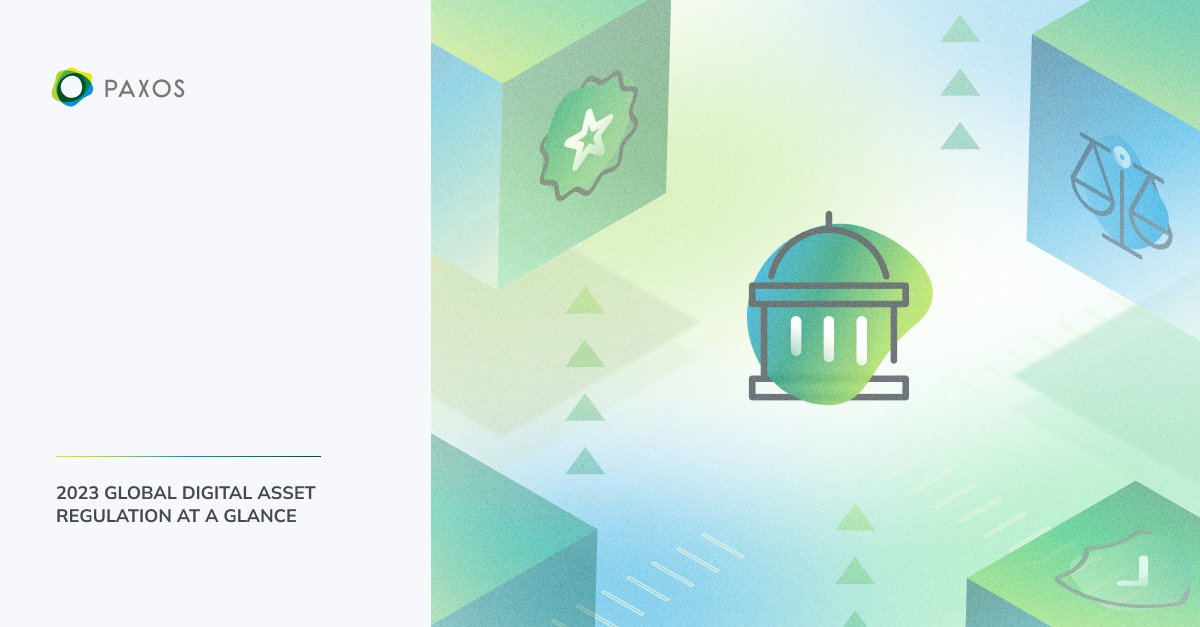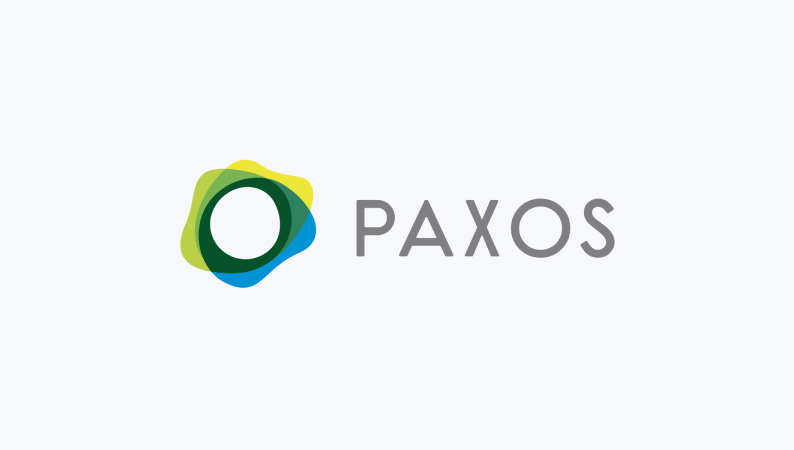
In today’s evolving financial landscape, digital assets have transcended niche markets to become a global phenomenon. Digital asset adoption and use may vary from nation to nation, but millions of people already understand their value. This drives market interest, and clear regulation becomes increasingly important as the digital ecosystem expands.
Understanding existing and potential regulatory frameworks is vital for enterprises, industry stakeholders and anyone seeking to navigate digital assets’ terrain. Regulation guides enterprise involvement and protects the end-user or consumer—and their assets—which is non-negotiable if industry-wide trust is to take hold.
Why regulation is key to stability
Digital asset regulation serves as a stabilizer in the financial industry. Progress in establishing clear regulation for digital assets — and each country’s willingness to implement it — are key to maintaining stability and minimizing risk. There are many ways advancements in regulation could potentially inspire growth in digital markets:
- Regulation would establish a standard for transparency and implement alignment with current AML measures, potentially deterring illicit activity.
- Regulatory oversight can provide consumer and investor protections with rules that govern exchanges and promote transparency so that market participants know where their assets are at all times.
- Regulation will foster institutional adoption by building confidence in markets, which attracts participation and brings liquidity and more long-term stability.
- Regulatory clarity encourages innovation as companies can better plan within a predictable legal framework, attracting the necessary talent and capital for groundbreaking blockchain applications.
Implementing effective regulation strikes a balance between enabling the potential of blockchain technology and safeguarding against the risks associated with the relatively new market.
Early indicators of future global regulation
Organizations such as the Financial Stability Board (FSB) and the Basel Committee on Banking Supervision (BCBS) have been early movers in creating a global standard. Both hope to implement their proposed global standards in 2025.
The FSB is taking a “high-level” and “flexible” approach in disseminating oversight guidelines. BCBS has identified some specific guidelines, but many may wait as the organization pledges to continue to monitor and revise their framework. Meanwhile, the European Parliament overwhelmingly approved the Markets in Crypto Act (MiCA) in 2023, the first piece of EU legislation for cryptocurrency assets.
Despite these efforts, global regulation standards will likely remain an evolving patchwork of national and international regulations for the near future.
Regulatory approaches around the world
National regulatory readiness, in part, is the theme of the “2023 Global Crypto Regulation Report,” from PwC that looks at various countries’ paths to regulation. The report views national readiness on a spectrum from “prohibiting cryptocurrency” to having “regulation in place.” This report, along with other perspectives, brings to light key insights on regulation from around the world:
The United States’ dual banking system means digital assets can potentially be regulated on the state and/or federal level. In both cases, state and federal regulatory and enforcement agencies seem to be moving ahead of Congress and the White House in regulating digital assets. In 2022, the White House announced a new framework, but little has occurred on that front since—despite seeing a significant amount of market activity moving off-shore. However, some state regulators have enabled prudential regulation for companies willing to meet their high standards and requirements.
In the UK prior to 2023, the regulation of crypto assets had not yet developed in a holistic way. Then in 2022, the United Kingdom finally moved to regulate crypto-assets via His Majesty’s Treasury (HMT) with a vote in the House of Commons. The resulting new legislation is included in the Financial Services and Markets Act 2023, which became law in June 2023.
The Canadian Securities Administrator (CSA) is open to innovation through its Regulatory Sandbox. The CSA Regulatory Sandbox was designed to “…support fintech businesses seeking to offer innovative products, services and applications.” As a result, at least ten crypto asset trading platforms have received exemptive relief to offer crypto products to investors with more expected.
Hong Kong aims to become a global hub for Virtual Assets (VA) via a harmonized regulatory framework that encompasses its financial ecosystem led by the Securities and Futures Commission (SFC) and the Hong Kong Monetary Authority (HKMA). In 2023, Hong Kong’s securities regulator said its crypto licensing regime would include measures to protect retail investors as it brings in tougher rules for digital asset companies.
The Bahamas signed into law its Digital Asset and Registered Exchanges Act (DARE) in 2020. DARE created a legal framework to regulate the issuance, sale and transfer of digital assets. Any legal entity conducting business in the Bahamas (regardless of physical location) must register with The Securities Commission of The Bahamas to conduct business that includes digital assets.
India remains cautious about embracing cryptocurrencies. In 2018, the Reserve Bank of India (RBI), India’s central bank, prohibited its financial services-regulated entities from facilitating the sale and purchase of cryptocurrencies, rendering crypto exchanges obsolete for rupee-based transactions within India. Then in 2020, India’s Supreme Court ruled that the prohibition was unconstitutional. India does not have an overarching regulatory framework for digital currencies.
Japan’s government has indicated Web3 is a key pillar for growth in the economy, and in 2021 established the Digital Agency to research digital asset use cases. The Ministry of Economy, Trade and Industry established a Web 3.0 advancement initiative aimed at moving the digital asset economy forward. Crypto asset exchange service providers must be registered with the Financial Services Agency in Japan (FSA), and security token brokers must register as Financial Instruments Business Operators under Japan’s Financial Instruments and Exchange Act. In June 2022, Japan passed a bill that separated stablecoins from other digital assets.
New Zealand has not implemented specific legislation to regulate digital assets or service providers. In 2021, the government launched an inquiry into cryptocurrencies to gain a stronger understanding of the benefits and risks of trading, its tax implications, how cryptocurrencies are used by criminal organizations and whether New Zealand currently has the means to regulate cryptocurrencies. In June 2023, the Reserve Bank of New Zealand’s (RBNZ) website quoted a report saying “…a regulatory approach isn’t needed right now, but increased vigilance is.”
South Africa has moved proactively to address regulatory requirements of crypto assets in the wake of increased adoption. In 2019, the government established the Crypto-Asset Regulatory Working Group to explore crypto-assets, and throughout 2022 South Africa implemented the group’s guidance. The Prudential Authority (PA) also issued guidance for banks on AML / CFT controls for crypto-assets and crypto-asset service providers (CASPs), and the Financial Services Conduct Authority (FSCA) declared crypto assets a “financial product.”
Singapore has established itself as a country with an innovative and responsible digital asset ecosystem. The Monetary Authority of Singapore (MAS) aims to guide high quality firms with strong risk management and value propositions to mitigate the risks of consumer harm, and educate consumers on the risks of cryptocurrencies and related services. During the licensing process for firms dealing in digital assets, MAS tends to prioritize those already demonstrating strong risk management capabilities.
The United Arab Emirates is attempting to establish itself as a global hub for digital assets. Abu Dhabi Global Market (ADGM) first established digital assets regulation in 2018, and the UAE created the Virtual Assets Regulatory Authority (VARA). Under the country’s federal civil law system, each UAE member state institutes its own regulations in areas where there is no federal law. Most financial and capital markets are governed by the Central Bank of the UAE (CBUAE) and the Securities and Commodities Authority (SCA). In 2023, the UAE central bank issued AML/CTF guidance for dealing with virtual assets.
Brazil hopes to become a crypto hub and is progressing towards that goal. In December 2022, Brazil published the Legal Framework for Virtual Assets in Brazil (Cryptoassets Act). In June 2023, a government decree made official the competence of the Central Bank of Brazil (BCB) to authorize, regulate and supervise the provision of virtual asset services.
Progress is slow but steady
Though this list represents only some of the international regulatory activity, it suggests the outlook for digital asset regulation around the world is trending in a favorable direction. Although there are numerous reasons for this, significant factors driving momentum indicate a growing sense of responsibility and maturity in dealing with the swiftly evolving digital asset ecosystem.

Want to learn more about digital asset regulation and what it means for your enterprise?
